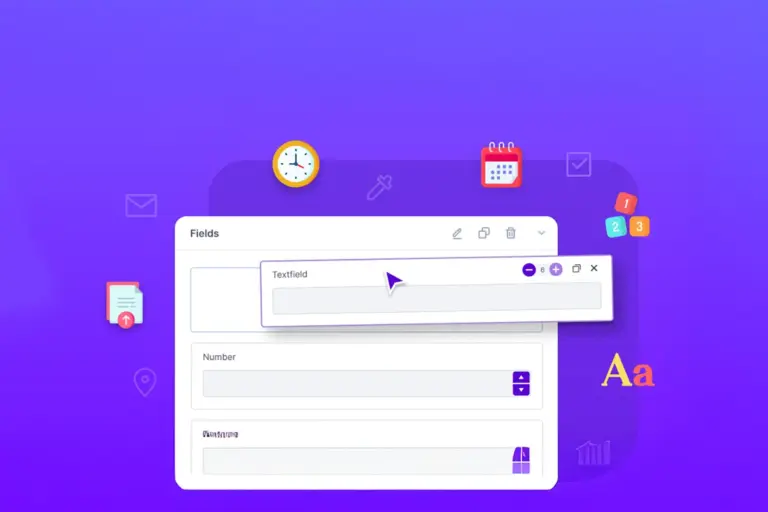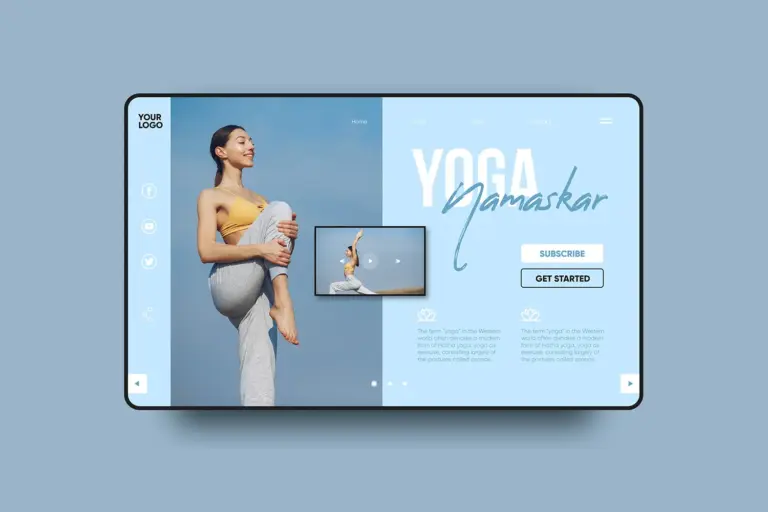The Best WordPress Page Builders of 2025 (An Honest, In-Depth Guide)
Remember the early days of WordPress? If you wanted to create a page layout that was even slightly more complex than a simple block of text, you had two options: wrestle with a tangled mess of shortcodes or hire a developer. Custom, beautiful layouts were a luxury, not the norm.
Then came page builders, and everything changed.
These revolutionary plugins introduced the magic of drag-and-drop, front-end editing to WordPress. Suddenly, anyone—from small business owners to freelance bloggers—could visually design stunning, professional-looking websites without touching a single line of code. They democratized web design, and the WordPress world was never the same.
But now, in late 2025, the landscape has shifted once again. The native WordPress block editor (Gutenberg) has become incredibly powerful, and a new generation of “block-based” builders has emerged. So, which path should you choose? Are the classic, all-in-one page builders still the best option?
This is your friendly, definitive guide to the world of WordPress page builders. We’ll explore what they are, weigh the pros and cons, and then dive deep into an honest comparison of the absolute best options on the market. By the end, you’ll have a crystal-clear understanding of which tool is the perfect fit for your skills, your goals, and your next amazing project.
What is a WordPress Page Builder? And Do You Still Need One?
A WordPress page builder is a plugin that replaces the standard WordPress editor with a live, visual, drag-and-drop interface.
You work on the front end of your site, seeing exactly what your visitors see. You can drag elements like text blocks, images, buttons, and contact forms onto the page, arrange them into complex column layouts, and style every detail with a few clicks. It’s an intuitive, “what you see is what you get” (WYSIWYG) experience.
But with the rise of the Gutenberg block editor, is a separate page builder still necessary?
The answer is: it depends on your needs.
- The WordPress Block Editor (Gutenberg): The native editor is now fantastic for creating beautiful blog posts and standard page layouts. With the help of “block add-on” plugins, it can achieve surprisingly complex designs. It’s lightweight and perfectly integrated.
- Dedicated Page Builders: These are still king when it comes to total design control. They offer more advanced modules, granular styling options, and often include powerful features like theme building, pop-up builders, and marketing integrations, providing an all-in-one design toolkit.
Think of it this way: Gutenberg is like a fantastic, high-end kitchen in a new house. A dedicated page builder is like hiring a world-class interior designer and giving them a full suite of professional tools to customize every single inch of that kitchen and the rest of the house.
What to Look for in a Great Page Builder
As we compare the top contenders, we’ll be judging them on these four crucial criteria:
- Ease of Use: How intuitive is the interface? Can a beginner jump in and start creating, or is there a steep learning curve?
- Features & Widgets: What design elements (widgets/modules) does it offer? Does it have advanced features like a theme builder, pop-up builder, or marketing integrations?
- Performance: How does it impact your site’s speed? A great page builder should be optimized to produce clean, efficient code that doesn’t bog down your website.
- Customization & Control: How much power do you have over the design? Can you fine-tune every margin, padding, color, and font, or are you limited to basic options?
With that framework in mind, let’s meet the champions.
The Titans: The Best All-in-One Page Builders
These are the big names in the industry, known for their comprehensive feature sets and ability to build almost any kind of website imaginable.
1. Elementor: The Undisputed King of Popularity

With over 10 million active installations, Elementor is more than a page builder; it’s a phenomenon. It has captured the market by offering a fast, intuitive interface and an incredibly powerful free version, making it the go-to choice for millions of users.
Why People Love Elementor:
- Fast, Intuitive Live Editing: Elementor’s front-end editor is a joy to use. It’s snappy, responsive, and the real-time feedback makes the design process feel fluid and creative.
- The Most Powerful Free Version: This is Elementor’s secret weapon. The free plugin is not a “lite” teaser; it’s a genuinely powerful tool with over 40 essential widgets, giving you everything you need to build beautiful, custom pages.
- Massive Widget Library & Template Kits: Elementor Pro unlocks a huge library of advanced widgets, professionally designed “Template Kits” (full website demos), and powerful features. The third-party ecosystem of add-ons is also the largest of any builder.
- A Complete Design Toolkit (Pro): Elementor Pro is a full WordPress design system. It includes a Theme Builder (to design your header, footer, and blog archives), a Form Builder, a Pop-up Builder, and a WooCommerce Builder.
What to Keep in Mind:
- Elementor has faced some criticism in the past regarding performance, as it can produce more complex code. However, recent updates have focused heavily on improving speed and code output.
Elementor is Best For:
- Everyone. From beginners who will love the free version and intuitive interface, to agencies who can leverage the Pro version’s all-in-one toolkit to build client sites efficiently. If you want the most popular, most flexible, and most well-supported page builder, start with Elementor.
2. Divi by Elegant Themes

Divi is unique in this list. It’s not just a plugin; it’s a flagship theme and a visual builder rolled into one powerful package. When you purchase a membership from Elegant Themes, you get the Divi Theme, the Divi Builder plugin (which can be used with any theme), and access to their other products like the Bloom email opt-in plugin.
Why People Love Divi:
- A True WYSIWYG Experience: Divi’s visual builder is incredibly immersive. You click directly on elements on the page and edit them in place. It feels less like working in an editor and more like sculpting a live webpage.
- Incredible Value: The Elegant Themes membership is one of the best deals in WordPress. For a single annual fee (or a one-time lifetime payment), you get access to all their products for use on unlimited websites.
- Massive Library of Pre-Built Layouts: Divi comes with thousands of stunning, full-page layout packs that you can import directly from the builder. This is a huge time-saver for getting new projects off the ground.
- Powerful A/B Split Testing: A killer feature for marketers. Divi has a built-in split testing tool that allows you to test different versions of your design to see which one converts better.
What to Keep in Mind:
- Divi uses a shortcode-based system. This means if you ever decide to deactivate Divi, it can leave behind a mess of shortcodes in your content that you’ll need to clean up. This creates a degree of “lock-in.”
Divi is Best For:
- Agencies, freelancers, and anyone who builds a lot of websites. The unlimited site license and incredible value are unbeatable. It’s also great for users who appreciate a highly visual, immersive design experience and want an all-in-one theme and builder solution.
3. Beaver Builder

Beaver Builder has built a passionate following by taking a different approach from its competitors. It prioritizes stability, clean code, and a professional workflow over having the longest feature list. It’s known in the developer community as the rock-solid, reliable choice.
Why People Love Beaver Builder:
- Rock-Solid Stability & Performance: Beaver Builder is famous for its clean, efficient code output. It’s less likely to cause plugin conflicts and is known for being lightweight and fast. When you deactivate it, it leaves behind clean HTML, with no messy shortcodes.
- Intuitive and User-Friendly: The interface is clean and easy to understand. While it might not be as flashy as Divi, its straightforward workflow is highly efficient once you get the hang of it.
- Excellent for Developers: Beaver Builder is highly extensible and developer-friendly, making it a favorite for agencies and professionals who build custom sites for clients.
- White Labeling (Agency Plan): The top-tier plan allows agencies to rebrand the builder as their own, which is a highly professional touch for client projects.
What to Keep in Mind:
- The free version is quite limited compared to Elementor. The real power of Beaver Builder is in its premium versions.
Beaver Builder is Best For:
- WordPress professionals, agencies, and any user who values stability and clean code above all else. If you’re building a mission-critical website for yourself or a client and want a reliable tool that won’t let you down, Beaver Builder is a fantastic investment.
The New Wave: The Rise of Block-Based Builders
This is not a separate category, but an evolution. Instead of replacing the WordPress editor, these plugins supercharge it, giving you powerful new blocks and design controls right inside the native interface.
4. Gutenberg + a Block Add-On (Kadence Blocks / GenerateBlocks)

This is the modern, lightweight, and “WordPress-native” way to build. You use the default block editor (Gutenberg) and enhance it with a powerful block toolkit plugin.
Why People Love This Approach:
- Blazing Fast Performance: This is the biggest advantage. By using the native editor, you avoid loading the extra CSS and JavaScript files that dedicated page builders require. The result is a significantly faster, higher-scoring website.
- Seamless Workflow: You’re not context-switching between WordPress and a separate builder interface. Everything happens in one clean, consistent environment.
- Future-Proof: This is the direction WordPress itself is heading. Building with blocks is aligning your site with the future of the platform.
- Incredibly Powerful: Don’t underestimate this approach. Plugins like Kadence Blocks (which has a fantastic free version) and GenerateBlocks add a full suite of powerful blocks like advanced grids, forms, testimonials, and image galleries, giving you page-builder-like control within the native editor.
This Approach is Best For:
- Performance enthusiasts, bloggers, and anyone who wants to build a lightning-fast website. It’s also perfect for users who enjoy the clean, integrated feel of the native WordPress experience. If speed is your absolute top priority, this is the way to go.
The Verdict: Which Page Builder is Right for You in 2025?
The “best” page builder is the one that best fits your needs, skills, and priorities.
- For the All-Around Best Experience & Features: Choose Elementor. Its powerful free version, intuitive editor, and all-in-one Pro toolkit make it the top choice for the vast majority of users.
- For the Best Value & Agency Use: Choose Divi. The lifetime, unlimited-site license is unbeatable for anyone who builds multiple websites, and its visual editor is a joy to use.
- For the Professional & Performance-Conscious: Choose Beaver Builder. If your priorities are clean code, stability, and a professional workflow, it’s the most reliable tool for the job.
- For the Ultimate Speed & “WordPress-Native” Feel: Choose the Gutenberg + Block Add-on approach (with Kadence Blocks or GenerateBlocks). This is the modern, future-proof way to build a blazing-fast website.
The power to build a truly custom, beautiful WordPress website is at your fingertips. Choose the tool that excites you the most, and start creating something amazing today.
Share Post:






